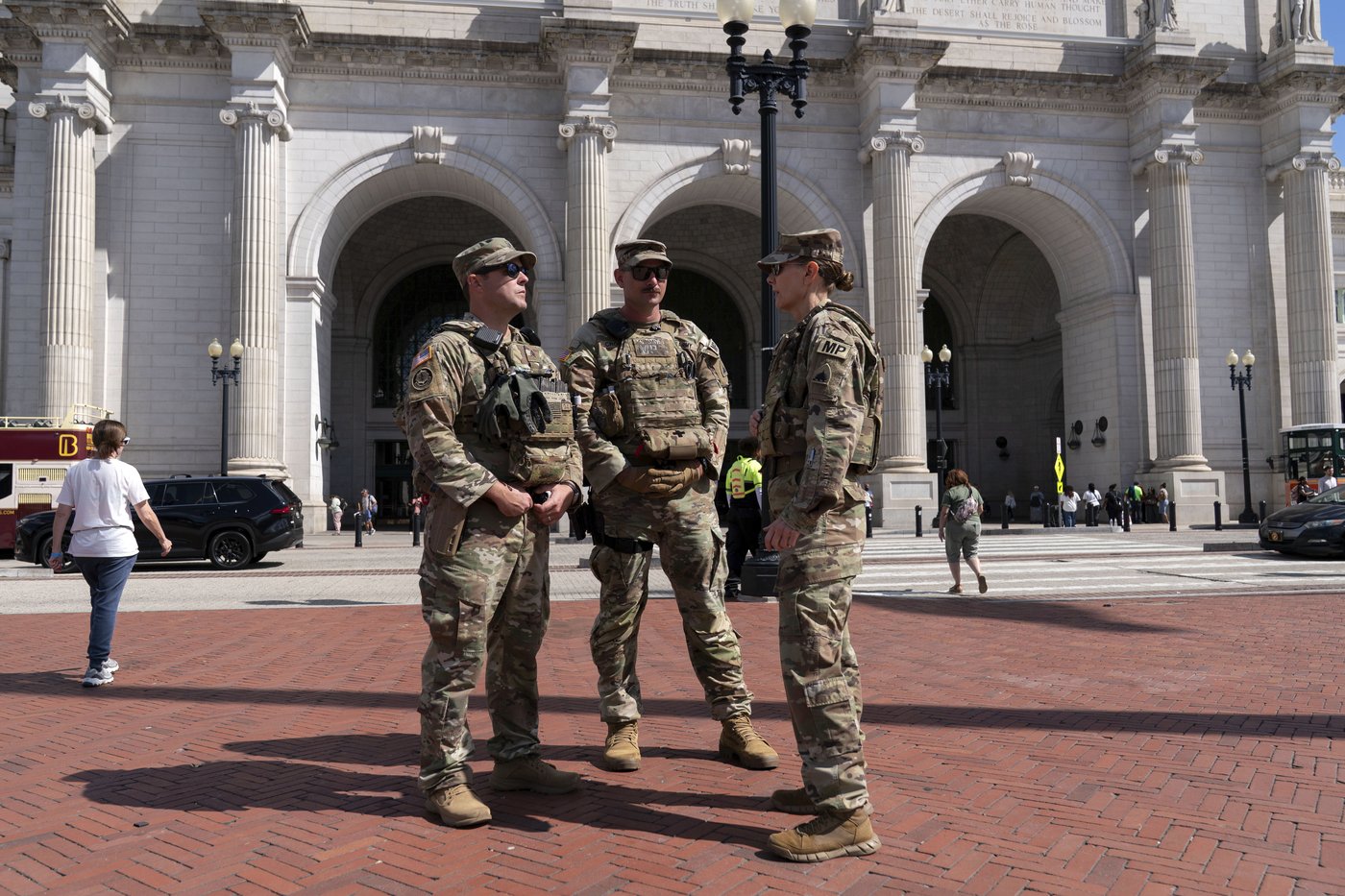Trump’s use of troops in D.C. is an alarming preview of militarized policing: experts

Concerns Rise Over National Guard Deployment in Washington, D.C.
As National Guard troops continue to patrol the streets of Washington, D.C., concerns are growing over the implications of their presence in the nation’s capital. What started as a response to a declared emergency over crime has now become a controversial issue that has divided the city.
Local Outrage
Many locals are outraged by the deployment of National Guard troops, questioning the necessity of their presence in tourist areas and public transit locations. The cost of the mission, estimated at $1 million per day, has only added fuel to the fire.
Protests against the deployment have become a common sight in the city, with thousands of “Free D.C.” signs appearing in windows as a symbol of resistance. The District of Columbia has even filed a lawsuit against the Trump administration, calling the deployment an illegal use of the military for domestic law enforcement.
Legal Questions
Legal experts are also raising questions about the deployment, citing the Posse Comitatus Act which prohibits the federal military or federalized National Guard from engaging in law enforcement activities without proper authorization. The Trump administration’s use of the National Guard in Washington, D.C., and threats to deploy troops to other cities have sparked concerns about the creation of a “national police force with the President as its chief.”
Critical Voices
Opposition to the deployment has come from various quarters, including Illinois Governor JB Pritzker and Baltimore Mayor Wes Moore, both of whom have rejected Trump’s requests to send troops to their cities. Critics argue that the presence of military forces on the streets of American cities sets a dangerous precedent and undermines the principles of democracy.
A Call for Vigilance
As the debate over the National Guard deployment continues, voices of dissent are growing louder. Veterans groups, such as Remember Your Oath, have expressed concerns about the erosion of civil liberties and the potential for authoritarianism in the United States.
While the troops may currently be engaged in seemingly benign activities, such as picking up garbage, their presence raises larger questions about the role of the military in domestic law enforcement. As the situation unfolds, it remains to be seen what the future holds for the National Guard in Washington, D.C., and beyond.
Author: Kelly Geraldine Malone, The Canadian Press



